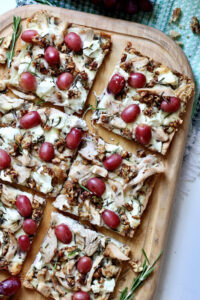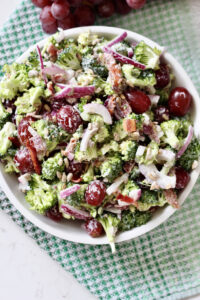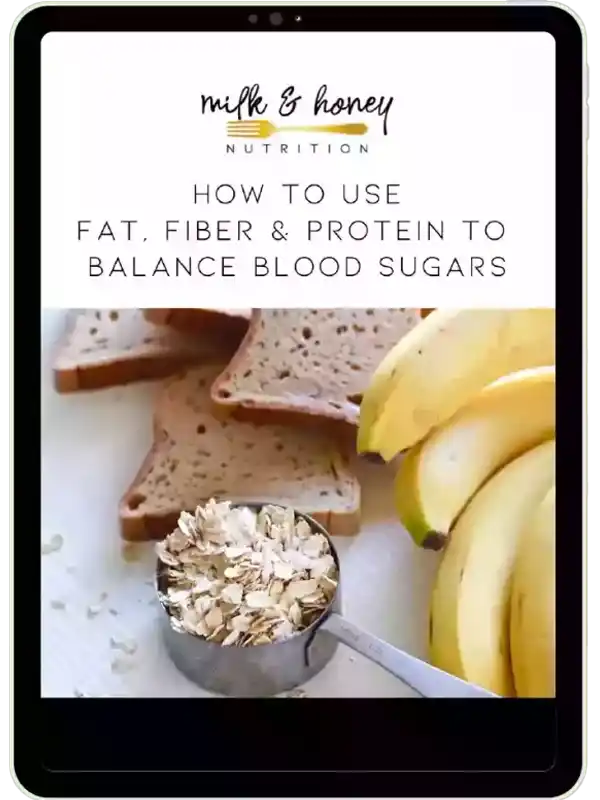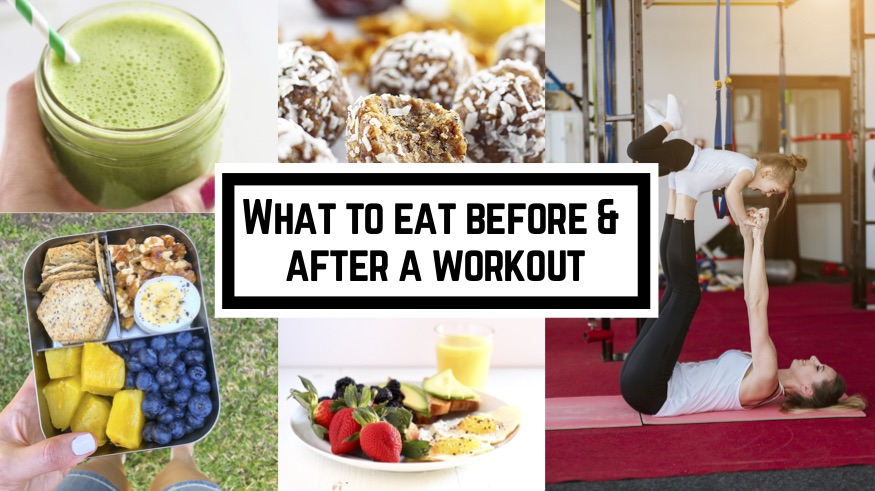
As a sports dietitian, the most common questions I get revolve around whether to eat before or after a workout.
There’s a lot of misinformation about nutrition out there, so when it comes to fitness nutrition, it’s important to understand why I give certain recommendations. Here I’ll briefly cover how we fuel activity, why everyone’s needs for exercise vary, main goals of food intake before and after, and provide actual suggestions for what to eat! I answer questions like should you eat before or after a workout?
Guest post by Kelly Jones, MS, RD, CSSD, LDN, founder of kellyjonesnutrition.com
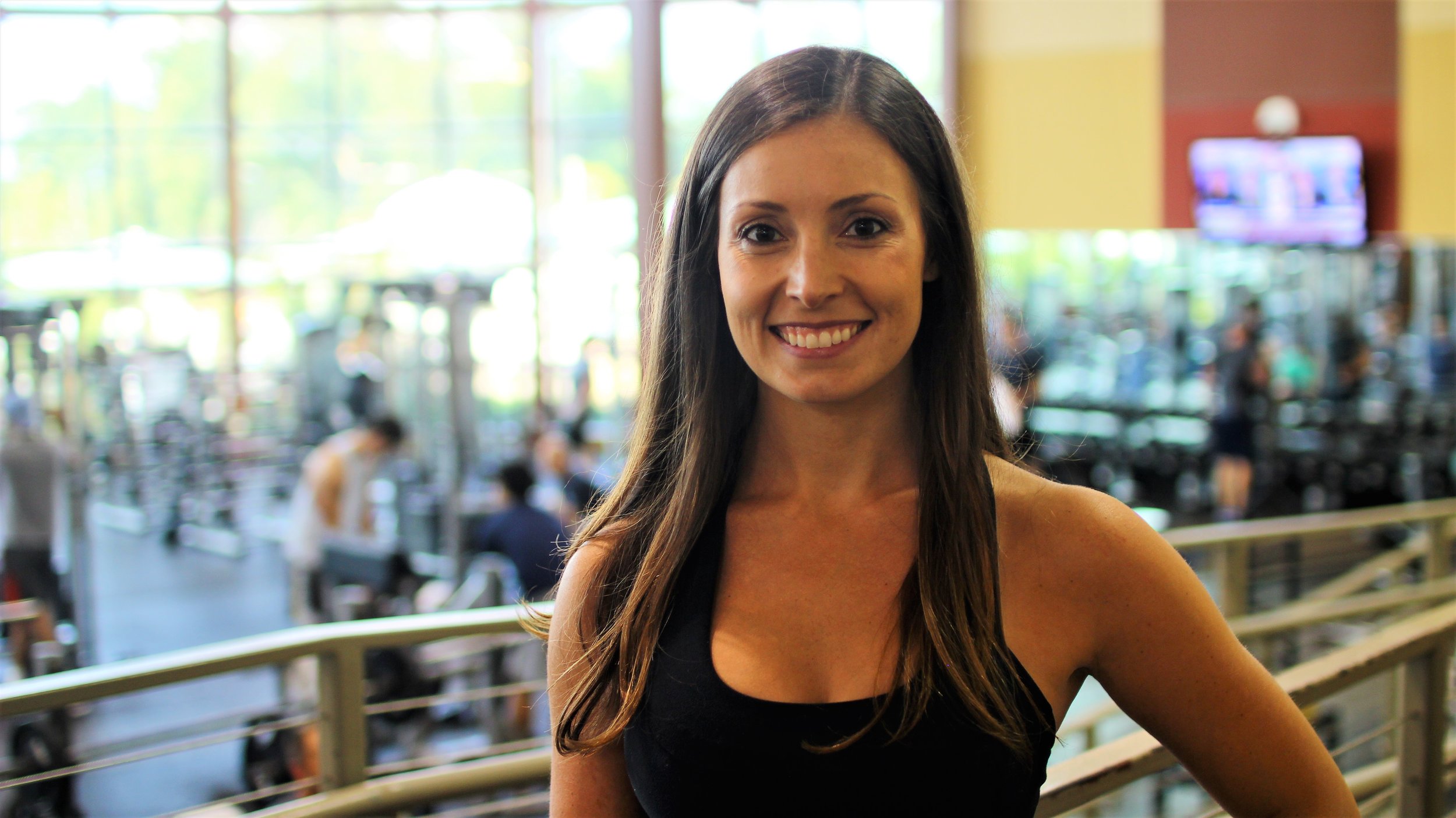
Kelly Jones is a media and consulting dietitian based in greater Philadelphia. As a board certified specialist in sports dietetics, her expertise lies in performance nutrition for athletes at every level as well as busy, active women. As a new mom who loves fitness, she offers recipes and tips to fuel an active lifestyle. Learn more at KellyJonesNutrition.com or follow her on Instagram, Facebook, or Pinterest. And, if you’re looking for performance nutrition information for your child athlete, check out her sister site StudentAthleteNutrition.com or follow on Instagram.
How Do We Fuel Activity?
If you’re engaging in a high intensity and short duration movement (lifting heavy weights, sprinting, exhaustive spurts during group exercise classes) you’re using mainly carbohydrate for fuel. The higher the intensity, the more your muscles prefer carbs since they’re the most efficient energy for quick, powerful movement.
However, you can’t stay at super high intensity levels for more than 1-2 minutes. So, to keep moving, your body won’t rely on just carbs.
That’s where fat comes in. For moderate intensity activities that most people engage in, the body uses a good mix of carbohydrate and fat to fuel muscles. (Note: If you’re exercising over an hour, you’ll need more carbohydrate during exercise. Fluids should also be considered more at this point. These topics won’t be covered in this post.)
I didn’t mention protein yet, as it’s more a structural nutrient necessary for recovery, not a significant source of energy. If you’re not eating adequate amounts of carbohydrate, protein will only provide 6-7% of the energy used for exercise. But, as I’m sure you know, it is important for recovery.
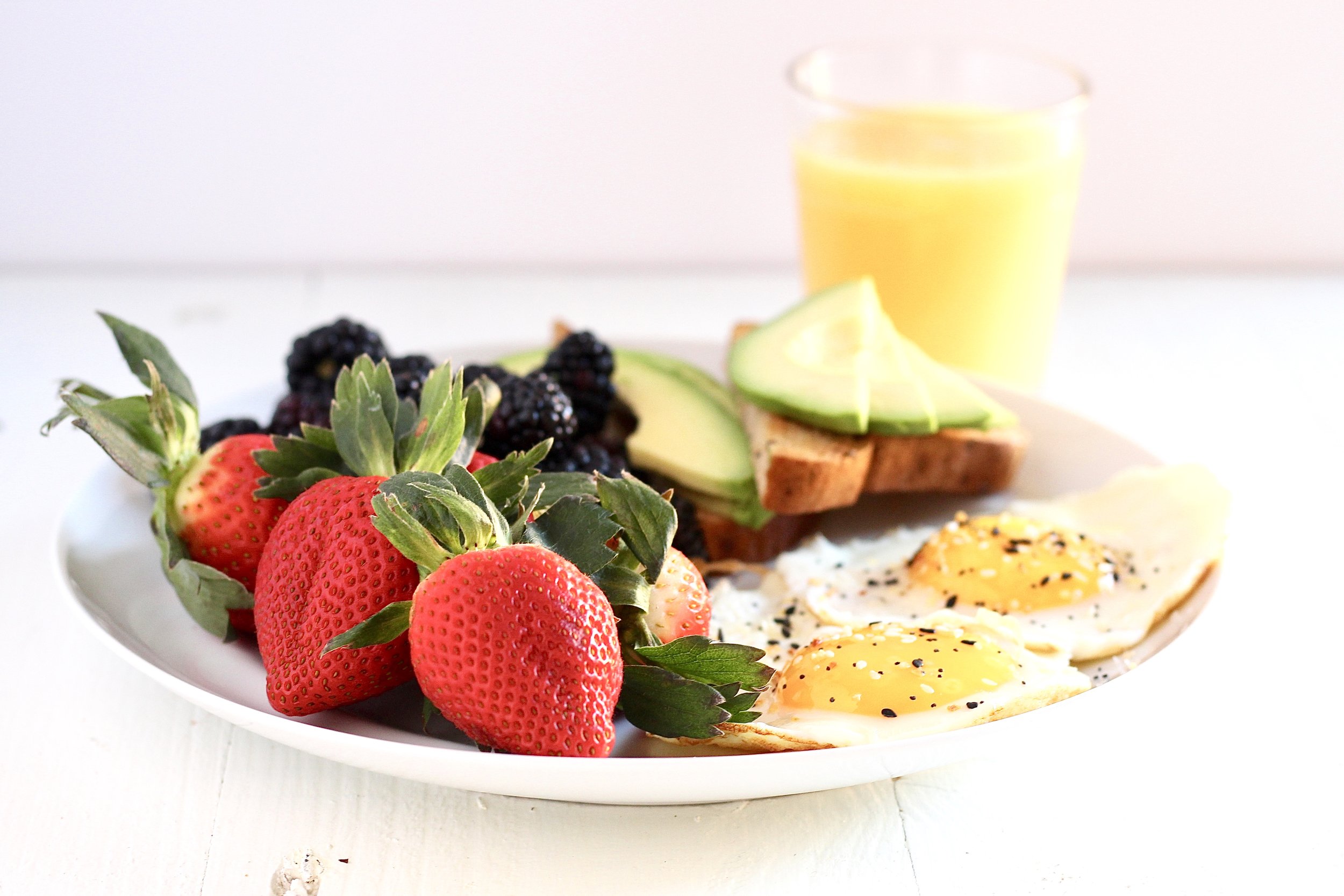
Energy Needs for Activity Vary
It’s SO important that you don’t mimic exactly what someone else is eating, even if their activity seems similar to yours. Listening to your body is key, so use trial and error to determine what works best for you.
The following are reasons energy needs for activity vary, and why I don’t advocate for trying to hit specific calorie goals before and after exercise:
- Fitness level, type of activity and tolerance to that activity
- Body type and body composition
- True intensity (versus perceived), duration, frequency of exercise
- Gender, age, microbiome health, and genetics
Pre-workout Goals
- Adequate carbohydrate for fueling your body
- Adequate food to prevent hunger
- Low to moderate fat, fiber, and protein
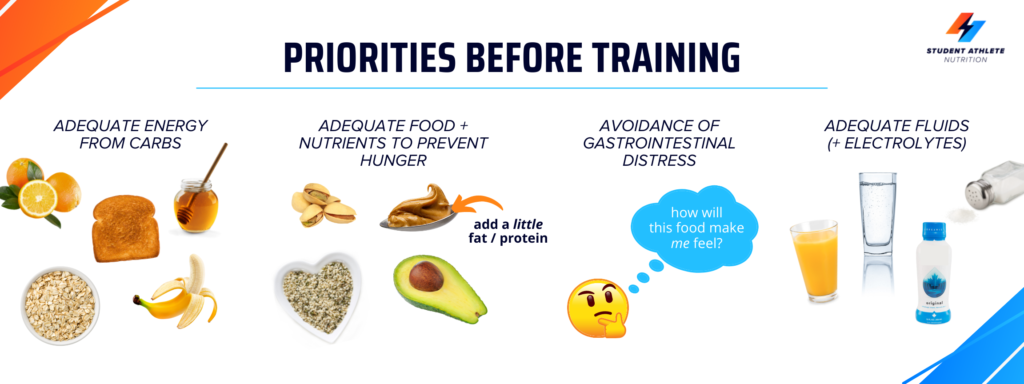
Adequate carbohydrate for fueling your body:
If you’ve had a normal meal within 2-3 hours of exercise, your workout won’t be over an hour, and hunger is nowhere in sight, you may be fine without a snack. Still, it’s best to plan so that you’re eating something 45 minutes – 2 hours before exercise. Since everyone is different, if your schedule works to have a full meal a few hours ahead, top off energy stores with something small. The suggestions below are great 45 min-2 hours before exercise with a few meant for when you have less time.
Adequate Food to Prevent Hunger:
If you find yourself hungry during exercise or starving afterwards, you aren’t eating enough before. Try something new or more food than usual.
Low-moderate fat, fiber, and protein:
All of these should be eaten at all meals and snacks during the day, but since excess can slow digestion for most people, it’s best to keep intake lower a couple hours before your sweat session.
Post-workout Goals
- Adequate quality protein to repair
- Adequate carbohydrate to refuel and recover
- Proper fluid and electrolytes
- Timely intake
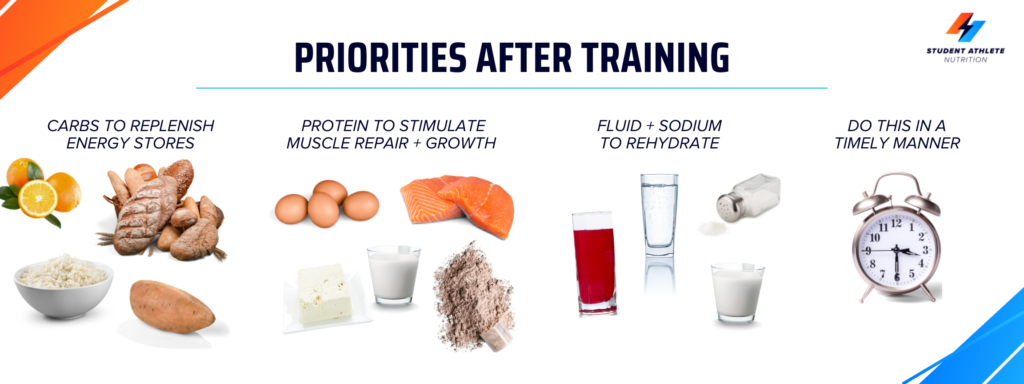
Adequate quality protein to repair:
Animal proteins are considered “high quality” based on the fact that they give you enough of the essential building blocks for muscle repair. Eggs, milk, and fish are go-to’s based on this and other nutrients provided. Soy protein also falls into the high-quality category.
If you’re reaching for plant proteins, pair a couple of sources. For example, whole grain bread with peanut butter provides protein from a whole grain and legume, building a high-quality protein. Pro tip: don’t think too much about this unless you grab just a handful of nuts after exercise, and just see the list below for pairing ideas.
What is an amino acid?
Amino acids, commonly referred to as the building blocks of proteins, are compounds responsible for building proteins, synthesizing hormones, and neurotransmitters.
There are 20 different amino acids, all are needed for our bodies to function and grow properly. However, because your body cannot make essential amino acids, they must be acquired from your diet. The best sources of essential amino acids are animal proteins, such as meat, poultry, and eggs.
Does eating protein post- workout help build muscle?
Yes, as previously mentioned, it is important to consume protein post workout to repair and build the muscle that was broken down while exercising. However, if muscle gain is a goal of yours, consistent intake of protein at all meals and snacks throughout the day is just as important! Aim for moderate intake whenever you eat rather than just high intake after you move your body.
How many grams of protein should I eat?
Just as calorie intake varies from person to person, so does protein. For those with high activity levels, at least 0.25 g/kg of your weight 4-5 times per day is recommended, but more may be helpful for many individuals depending on a variety of factors. Discuss with your dietitian for exactly how much protein your body may need.
Adequate carbohydrate to refuel and recover:
After exercise, your muscle carb stores are down. Don’t wait until your next pre-workout snack to put them back in! Your brain’s preferred fuel is carbohydrate too, and you don’t want to compromise it’s function because you didn’t fuel well after activity. Worth noting: waiting more than 2 hours after a long or intense workout to eat carbs can result in 50% less carbohydrate stored as glycogen, the storage form of carbohydrate in muscles. Some research also shows protein is better used for recovery when consumed with carbs. See this You Tube video for more info.
Adequate fluid & electrolytes:
I said I wouldn’t cover fluid, but here’s an exception. If you’re dehydrated, you won’t be able to listen to your body’s hunger and fullness cues later and you’ll compromise recovery. If you want more hydration tips, this free download on the top tips for student athlete hydration applies to adults, too!
Timely intake:
Research shows eating within 2 hours of exercise supports proper recovery. Still, this may be too long for many people as it only considers muscle recovery, not eating patterns the rest of the day. I recommend a snack is eaten within an hour of activity, with a meal eaten within the next 3 hours (listen to your body in terms of when).
You may not feel too hungry after exercise, but muscles are depleted, and blood sugar is now a bigger source of energy. As that dips, it increases the chance of overeating later and having a harder time listening to your fullness cues, since you’re overcompensating for what you didn’t have earlier.
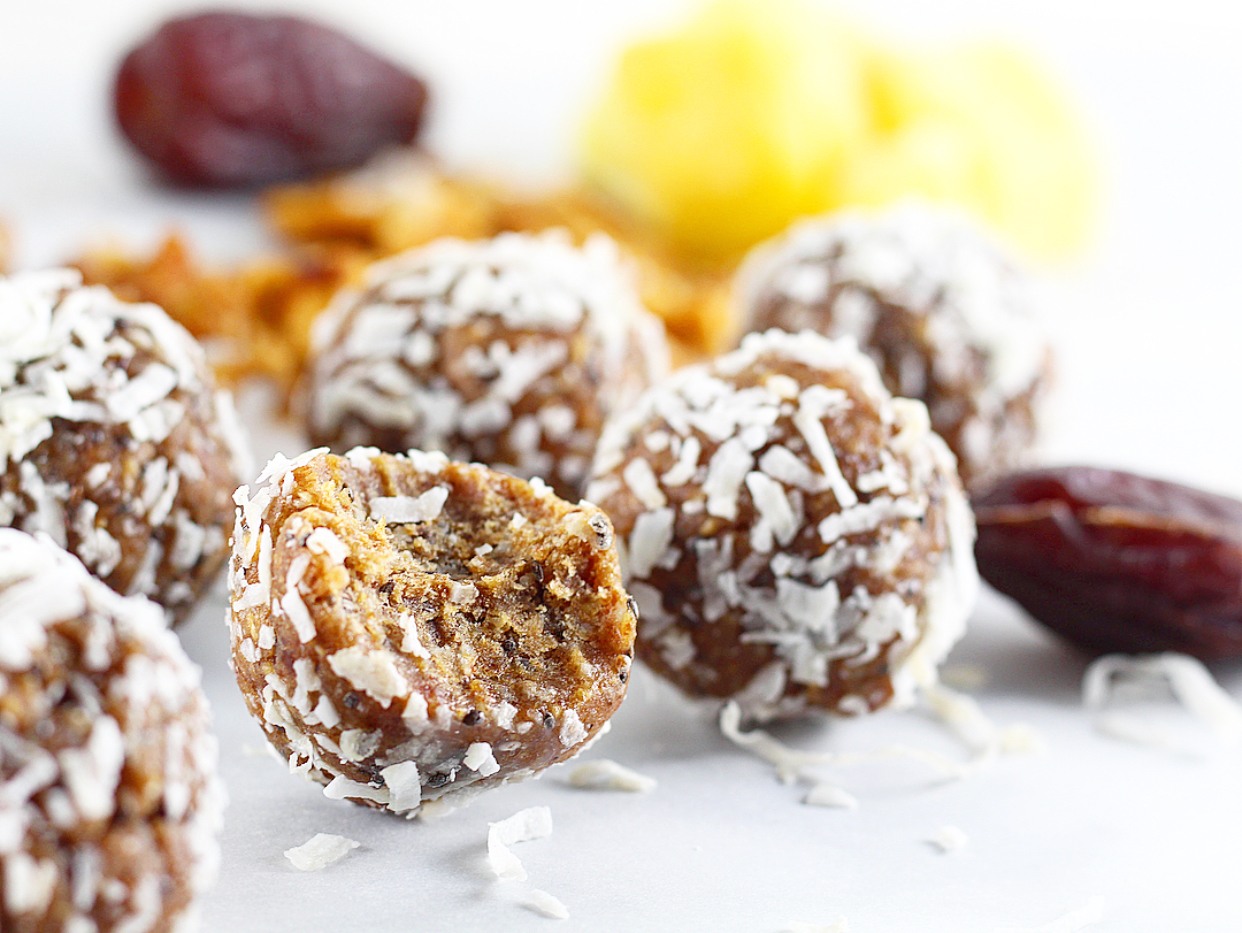
Pre-Workout Meal/ Snack Ideas (45 minutes- 2 hours before)
- banana and nut butter
- oats & fruit
- applesauce & almonds
- brown rice cake & nut butter
- wheat pita & hummus
- sprouted grain bread & fruit preserve
- small sweet potato & nut butter
- wheat toaster waffle w/ fruit
- avocado toast (or other toppings)
- homemade energy bites or bars
- whole food energy bar (Bobo’s Oat Bites, Health Warrior Chia Bars, Cliff nut butter filled bar, cliff kids zbar, Larabar, 88 acres bars, KIND granola)
What to eat before a workout (if exercising within 30-45 minutes of eating)
- dates, raisins, dried mango, etc.
- orange or other citrus
- 6 oz. real juice
- fruit smoothie
- honey packet (if 15 min prior)
Post-Workout Nutrition
It is extremely important to eat after exercising. Ideally, a combination of a high-quality protein and carbohydrate. Keep reading for post-workout snack ideas.
What to eat after a workout?
If you’ve been wondering, what should you eat after a workout, try some of these ideas:
- Low-fat milk or soymilk w/ fruit
- Berry & greens smoothie (made with protein rich milk or yogurt)
- HB eggs with hummus & pita
- sliced turkey and pineapple
- half turkey sandwich w/ hummus
- sprouted grain bread & PB
- small sweet potato & chicken tenderloin
- canned tuna or salmon w/ avocado on wheat
- turkey or salmon jerky with fruit
- dried fruit & low-fat cheese
- plain yogurt with fruit
- cottage cheese and fruit
- roasted edamame and dried fruit
- Bars: RxBar, Oatmega, Aloha, Square, Perfect Bar, Garden of Life protein, Cliff Builder
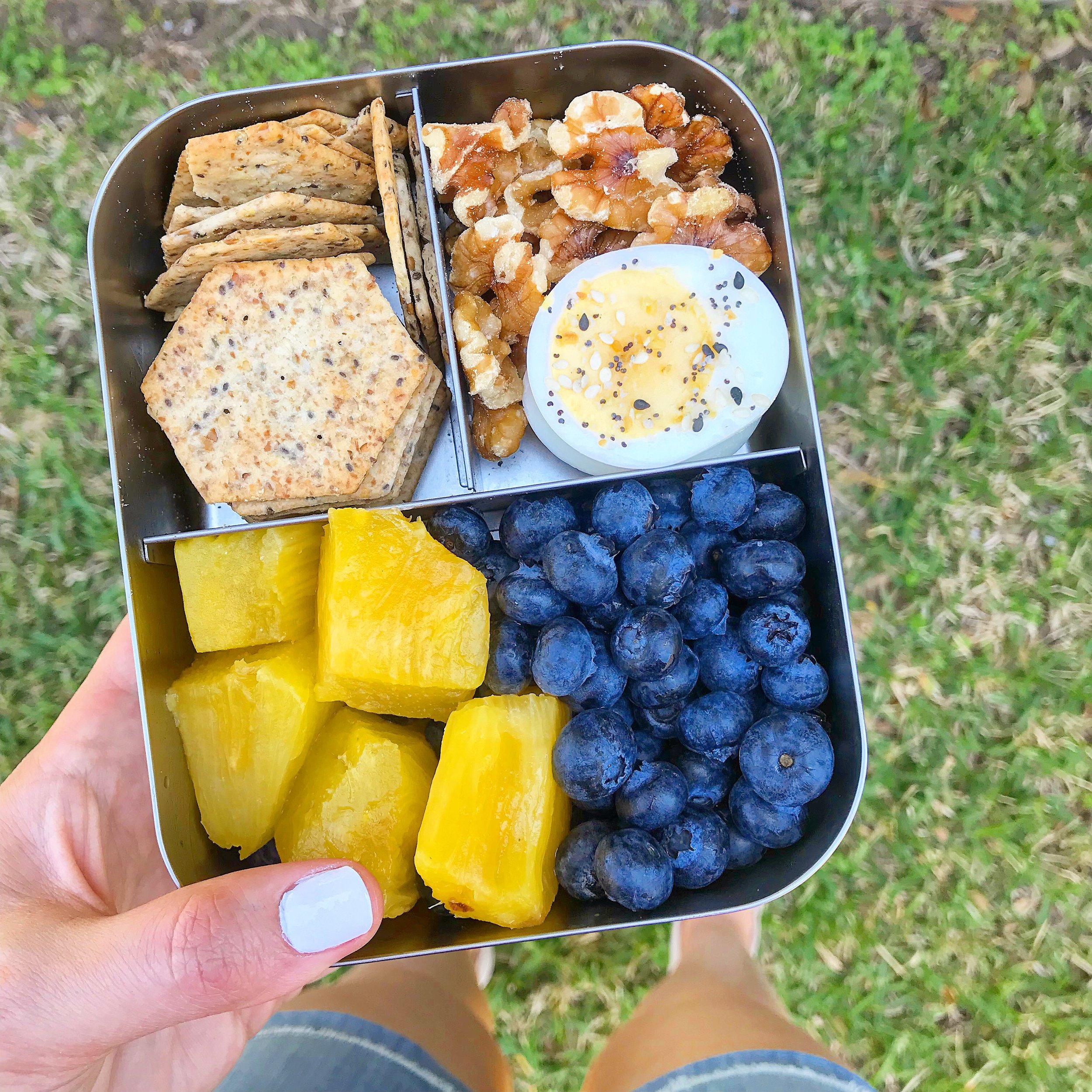
Common questions on whether to eat before or after a workout
Here are some questions and answers I get from clients:
What happens if you workout on an empty stomach?
Glycogen stores from your muscles are used as energy instead of using quick energy from a pre workout snack or previous meal. This could lead to breaking down muscle mass and potentially not having enough energy to complete your workout and leave you feeling lightheaded or nauseous.
Is it better to eat before or after a workout?
I’ve expressed throughout the article that it’s best to eat both before AND after a workout! This can take some time to adjust, but I know you can do it!
How many hours before your workout should you eat?
It is best to eat a pre workout snack 45 min to 2 hours before you exercise. If you had a meal within a few hours before exercising, a small snack should be enough to finish your workout.
What do you think about Greek yogurt as a post work out snack?
Greek yogurt is a great combination of carbohydrate, protein, and fat, making it an ideal post work out. One of my suggestions above for post work out nutrition includes plain yogurt and fruit. Adding fruit or another carbohydrate to a plain or low sugar Greek yogurt will help you better replenish energy stores.
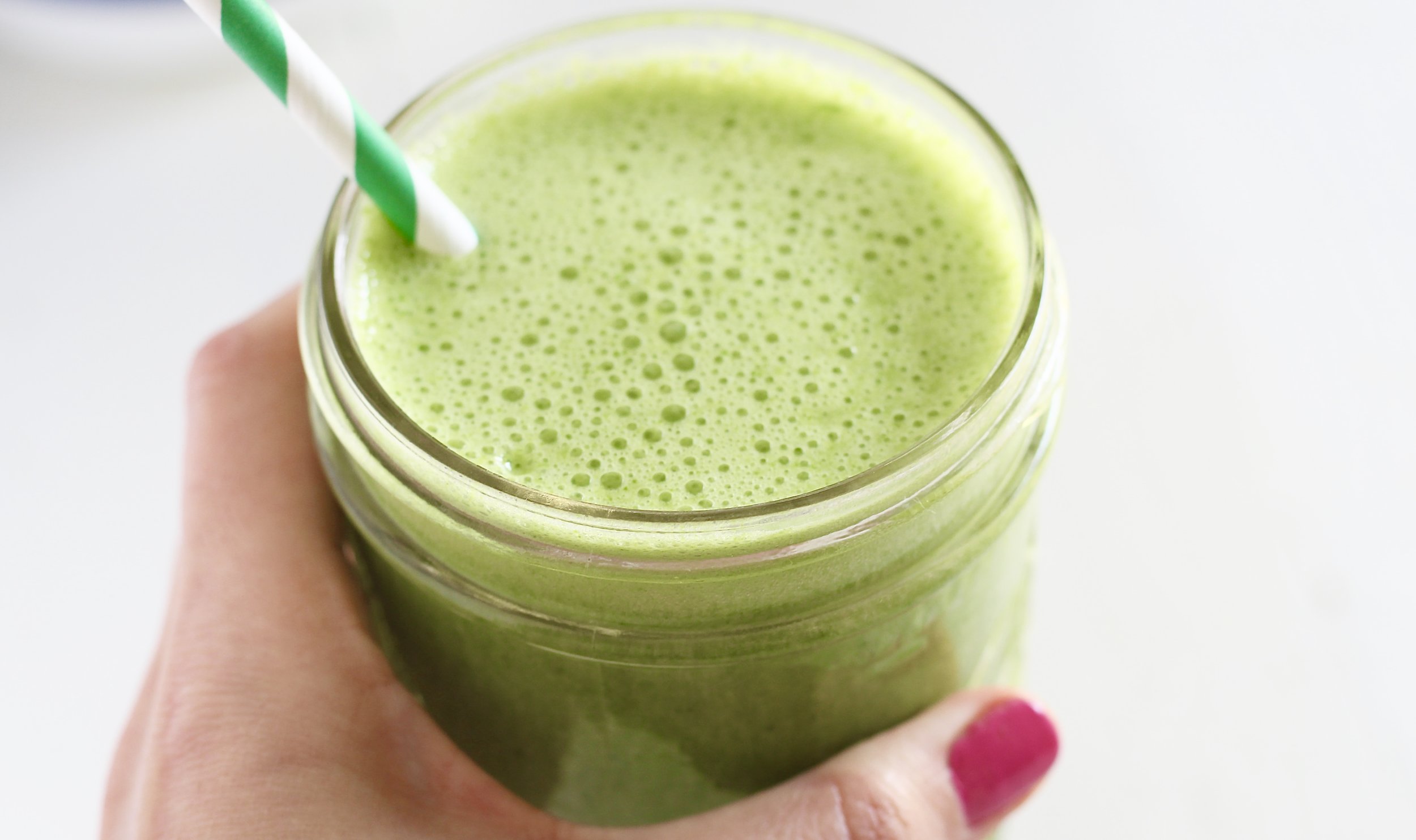
What to do from here
If you’re feeling overwhelmed with info, evaluate how you currently fuel for exercise versus the above recommendations and pick one thing to work on. If you’re ready to start trying some new snacks, choose 1-2 from the list you think you’ll like! Then, determine if it’s enough, too much, at the right time, and tweak from there.
Remember, your nutrition should be unique to you, and it sometimes takes a little while to determine what options help you feel best. Also remember that every day won’t be the same; you’ll need more or less food day to day. Reach out with general questions!
More posts on nutrition and exercise
If you’ve enjoyed this article, make sure to check out these other resources…
Exercise and Diabetes – Guidelines and Effects on Blood Sugar


